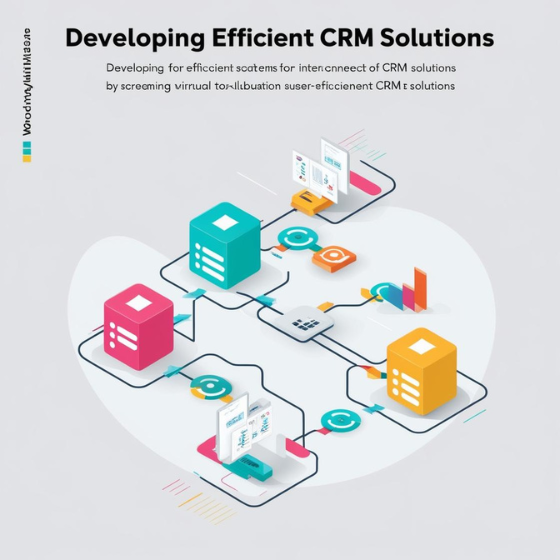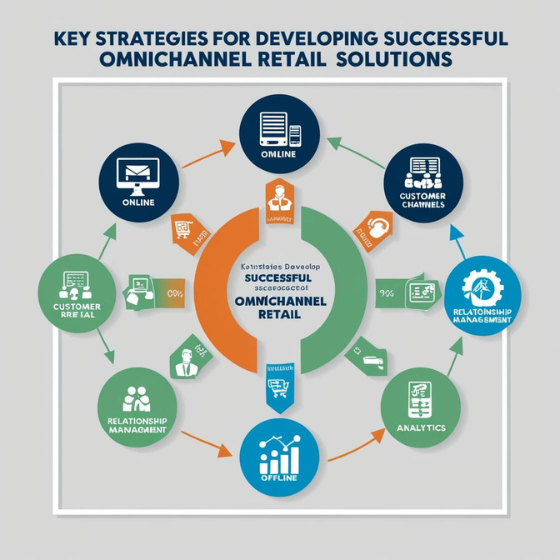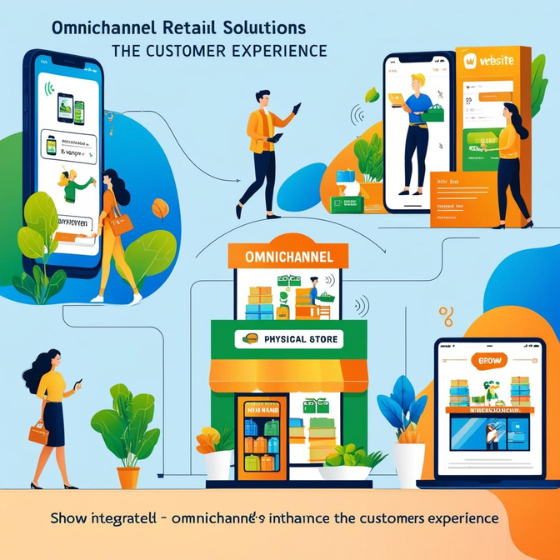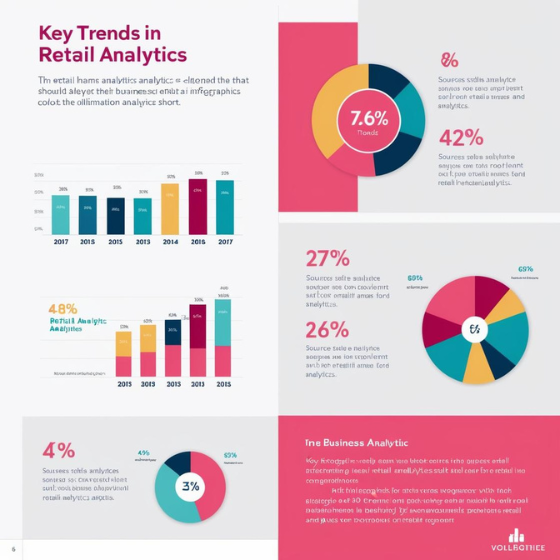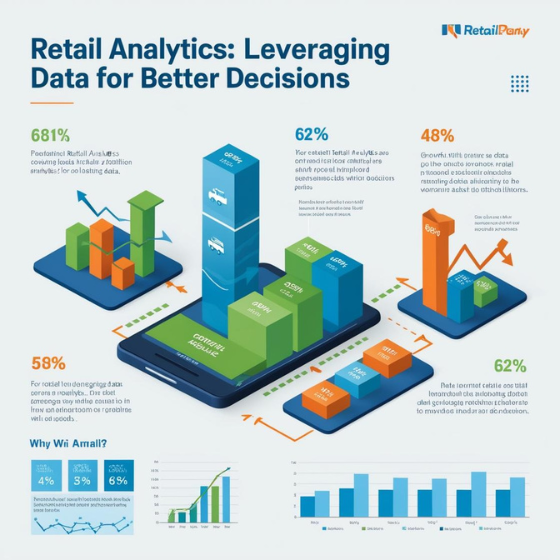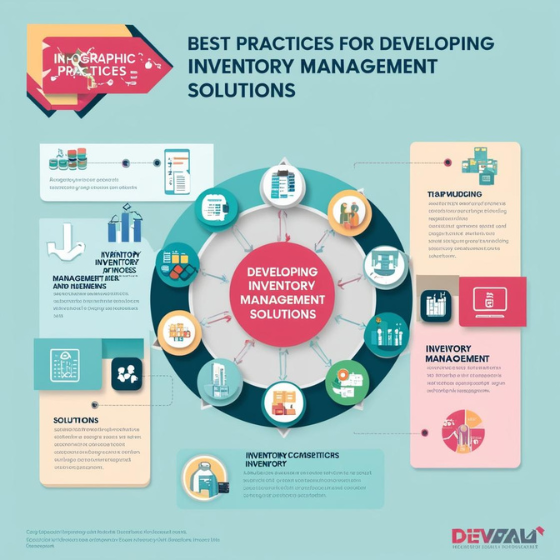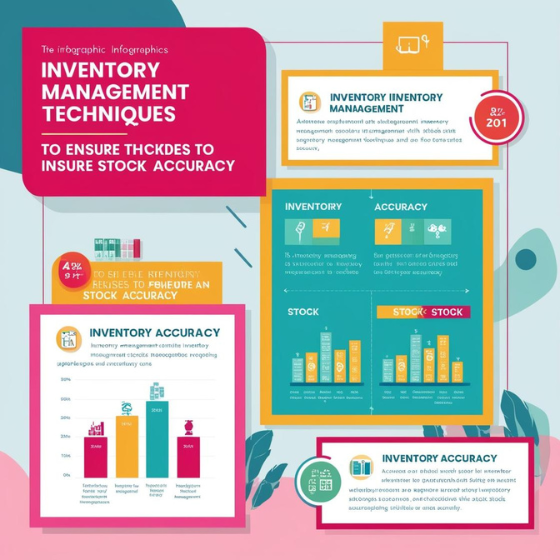Introduction
Did you know that businesses that use Customer Relationship Management (CRM) systems see a 41% increase in revenue per sales representative? It’s no secret that efficient CRM solutions can significantly improve customer relationships and drive business growth. However, developing an effective CRM solution involves more than just choosing the right software—it’s about understanding your customers’ needs, streamlining your processes, and using the right tools to engage with your audience.
In this blog, we will explore how to develop efficient CRM solutions that meet the needs of both your business and your customers. Whether you are just starting with CRM or looking to optimize an existing system, this guide will help you understand the key components of a successful CRM strategy and how to implement them.
Why CRM Solutions Matter for Your Business
CRM solutions are designed to improve your relationships with customers by providing a centralized platform to manage customer data, interactions, and business processes. The more efficiently you manage these aspects, the stronger the relationship you can build with your customers.
Key reasons CRM solutions are crucial for businesses include:
- Enhanced Customer Insights: CRM provides valuable data about your customers, such as their preferences, purchase history, and communication patterns. These insights help you personalize interactions and make informed decisions.
- Improved Customer Service: By having all customer data in one place, your support team can resolve issues faster and more efficiently.
- Increased Sales and Retention: With better customer insights and streamlined processes, CRM solutions can drive higher conversion rates and improve customer loyalty.
Steps for Developing Efficient CRM Solutions
Building an effective CRM solution requires careful planning and implementation. Here are the key steps to take when developing a CRM system that helps your business thrive.
1. Understand Your Business Needs
Before diving into CRM software selection, it’s essential to assess your business needs. What challenges are you trying to solve with CRM? Are you focused on improving sales, enhancing customer support, or streamlining marketing efforts?
Consider the following:
- Sales: Do you need CRM to help track leads, manage opportunities, and forecast sales?
- Customer Support: Is your priority to improve customer service with faster response times and better issue resolution?
- Marketing: Do you need CRM to automate campaigns and segment customer bases for more personalized outreach?
Identifying your business goals will guide your decision-making process when choosing the right CRM solution.
2. Choose the Right CRM Platform
There are various CRM platforms available, each offering different features and functionalities. Choosing the right one depends on the size of your business, your industry, and your specific needs. Here are some key considerations:
- Cloud-based vs. On-premise: Cloud CRMs offer scalability, remote access, and lower upfront costs, while on-premise systems give businesses more control over their data.
- Customization: Make sure the CRM can be tailored to meet your unique business processes.
- Integration: The CRM should seamlessly integrate with other tools you use, such as email marketing platforms, analytics software, or eCommerce systems.
Popular CRM solutions like Salesforce, HubSpot, and Zoho CRM each have their own strengths, so take the time to evaluate which one suits your requirements.
3. Implement Data Management Strategies
A successful CRM system relies on accurate and organized customer data. Effective data management strategies ensure that your CRM system provides reliable insights and enhances customer interactions.
Here’s how to optimize your CRM data management:
- Data Cleaning: Regularly remove duplicates, outdated information, and incomplete records to maintain the accuracy of your customer data.
- Data Segmentation: Segment your customers based on criteria like demographics, behaviors, or engagement levels. This helps tailor marketing efforts and create personalized experiences.
- Data Integration: Ensure that your CRM integrates with other business tools to pull in relevant customer data from various channels, such as emails, social media, and web interactions.
4. Automate Customer Interactions
One of the greatest advantages of CRM solutions is their ability to automate repetitive tasks. Automation not only saves time but also ensures that customers receive timely and consistent communication.
Examples of automation in CRM solutions include:
- Email Campaigns: Set up automated email sequences for onboarding, promotions, and follow-ups.
- Lead Nurturing: Automatically move leads through the sales funnel based on their behavior, such as clicking on emails or visiting specific pages.
- Customer Feedback: Automate the process of collecting customer feedback after interactions, purchases, or support cases.
Automation helps your business scale by reducing manual work and improving consistency in communication.
5. Train Your Team
A CRM system is only as effective as the people using it. To ensure your CRM solution is successful, invest time in training your employees on how to use the platform.
- Sales Team: Ensure your sales team knows how to track leads, manage opportunities, and utilize CRM data for better targeting.
- Customer Support: Teach your support team how to use CRM to track tickets, resolve issues quickly, and provide proactive support.
- Marketing Team: Make sure your marketing team understands how to use CRM to run personalized campaigns and measure success.
By empowering your team to use the CRM system effectively, you maximize its potential and create a more streamlined workflow.
6. Monitor and Optimize Your CRM
Once your CRM system is up and running, continuous monitoring and optimization are crucial. Regularly review CRM data to identify areas for improvement and ensure that the system is meeting your goals.
Key metrics to monitor include:
- Customer Satisfaction: Track customer feedback, Net Promoter Scores (NPS), or satisfaction surveys to measure how well your CRM is enhancing customer relationships.
- Sales Performance: Review sales pipeline metrics, conversion rates, and revenue generated to assess the effectiveness of your CRM in driving sales.
- Operational Efficiency: Monitor system usage, automation results, and team productivity to identify areas where processes can be streamlined.
Optimize your CRM based on feedback and performance to ensure it continues to meet the evolving needs of your business.
Common Challenges in CRM Implementation and How to Overcome Them
While developing CRM solutions, businesses often face some common challenges. Here’s how to address them:
1. Resistance to Change
Employees may resist adopting a new CRM system due to familiarity with old processes or fear of complexity. To overcome this challenge:
- Provide comprehensive training.
- Highlight the benefits of CRM in making their jobs easier.
- Offer support throughout the transition.
2. Data Quality Issues
CRM is only effective if the data entered is accurate and up-to-date. To maintain high data quality:
- Conduct regular data audits.
- Implement strict data entry guidelines.
- Use data validation tools.
3. Integration Issues
Integrating CRM with other business tools can sometimes be tricky. To ensure smooth integration:
- Choose a CRM that supports integrations with your existing tools.
- Work with experienced IT professionals to ensure smooth data flow between systems.
Conclusion
Developing efficient CRM solutions is an ongoing process that requires understanding your business needs, choosing the right platform, and continuously optimizing your approach. By following the steps outlined above, you can build a CRM system that not only helps you manage customer relationships but also enhances customer loyalty, boosts sales, and improves operational efficiency.
At Sodio, we specialize in helping businesses implement and optimize CRM solutions tailored to their unique needs. If you’re ready to take your CRM strategy to the next level, contact us today to see how we can help you build stronger relationships with your customers and drive business growth.
Looking to develop an efficient CRM solution? Explore Sodio’s CRM services and get in touch with our team of experts to create a customized CRM system that works for your business.
